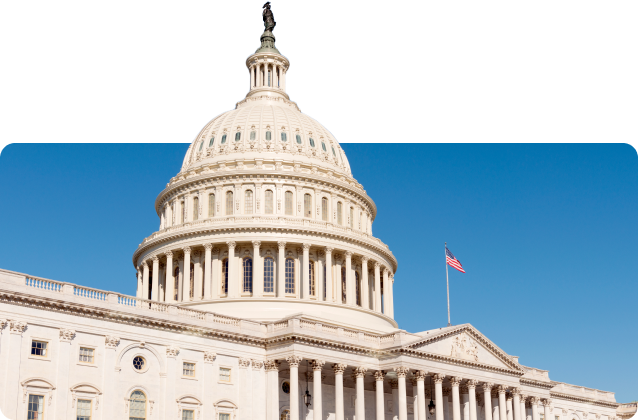August 14, 2020
NEPA Reform: Four Decades in The Making
The National Environmental Policy Act (NEPA) was signed into law ...
Read More ›
The U.S. is home to more than $6.2 trillion worth of minerals and metals. Yet delays in our current mine permitting process have put our nation at the bottom of the list of top mining countries, sending mining jobs overseas and forcing U.S. manufacturers to increasingly rely on mineral imports. This is a policy issue that needs to be addressed.

Members of Congress have acknowledged our inefficient and duplicative permitting process by introducing legislation to reform these policies in the 116th Congress. In the Senate, a bill titled the “American Mineral Security Act” was introduced by Sen. Lisa Murkowski (R-Alaska) and her colleagues to streamline the federal permitting process. In the House, Rep. Mark Amodei (R-Nev.) is championing the “National Strategic and Critical Minerals Production Act” to remove the barriers to responsible mining here at home.
Both bills would ensure better access to domestic minerals and metals and secure the nation’s raw materials supply chain, which will help to improve our energy infrastructure, efficiency and security in the years to come. Better access to domestic mineral reserves would also bolster America’s manufacturing renaissance, economic development and global competitiveness, and help create more jobs for hard-working Americans both in mining and the industries dependent on minerals.
In the U.S., the process to obtain mine permits can take upwards of seven to 10 years. Compare that to countries like Canada and Australia, whose modern minerals-permitting policies enable them to complete the process in two to three years while following similarly stringent environmental standards.
As a result of the lengthy, costly and inefficient permitting process, businesses invest in countries with shorter permitting processes and U.S. manufacturers are forced to rely on mineral imports. In fact, our nation’s dependence on mineral imports—many of which we could mine here at home—has doubled over the past 20 years. Today, less than half of the mineral needs of U.S. manufacturing are met from domestically mined minerals.
Without compromising our rigorous environmental standards, the minerals legislation under consideration incorporates best practices for improving coordination among state and federal agencies, minimize duplication, set timeframes and bring much needed accountability to the process. Similar bills have received bipartisan support in Congress. In fact, the House of Representatives has passed nearly identical permitting reform legislation five times in the last three Congresses.
If we allow U.S. mining to perform at its full potential, our nation can enjoy enormous economic growth, job-creation opportunities and a domestic manufacturing revival.